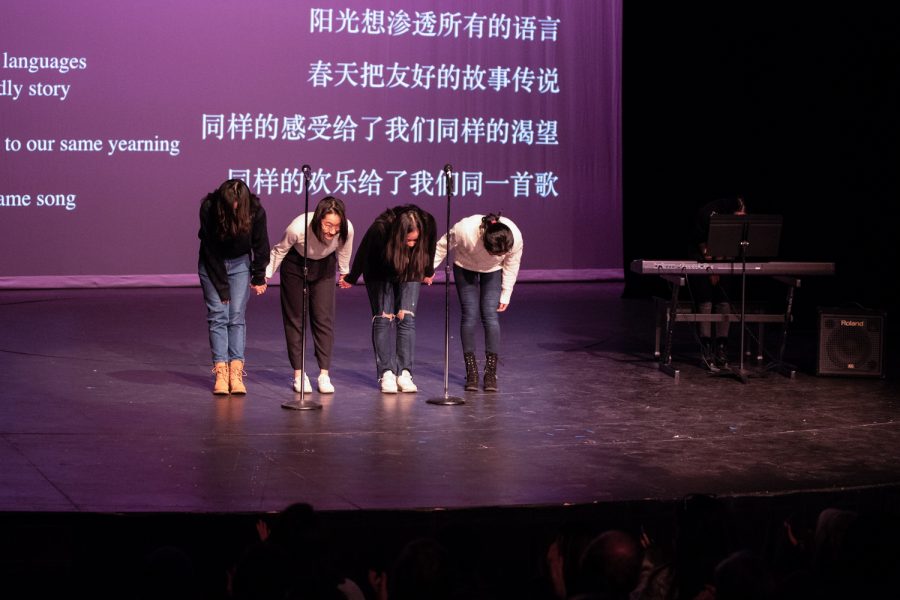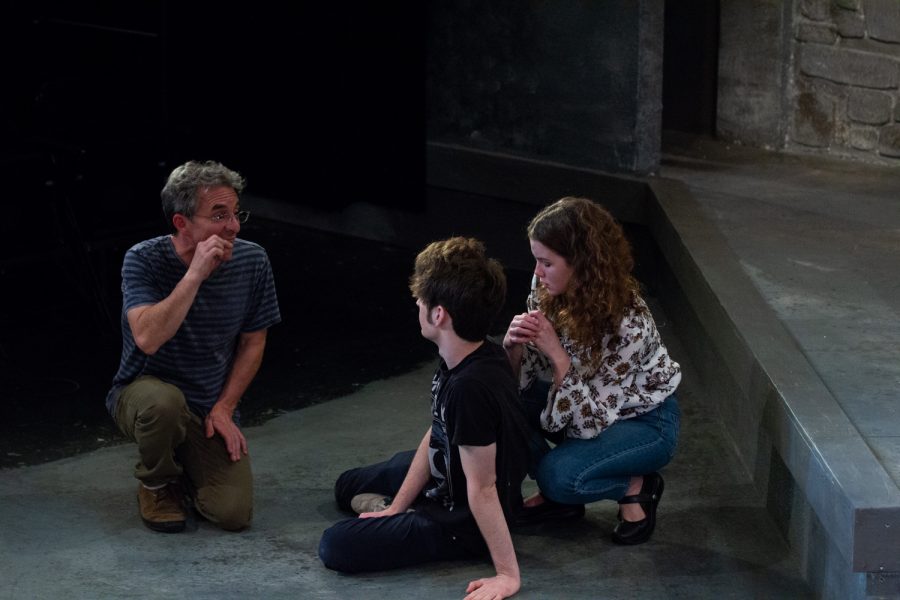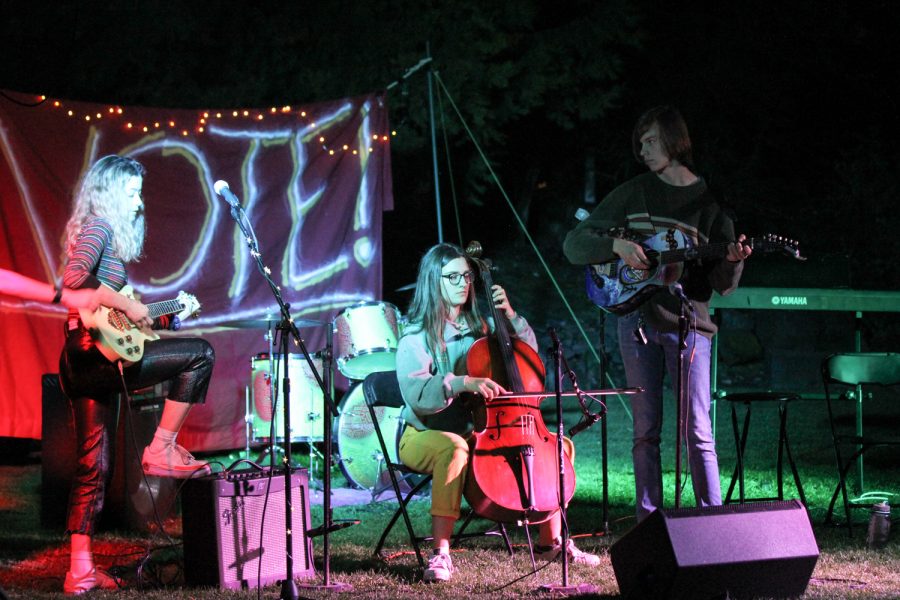
You’re a senior. You’re getting ready to finish up your English degree. If you’re writing a thesis, you’re facing an important question: would you rather write seventy pages on a critical analysis of James Joyce, or seventy pages of your own short stories? It may come as a surprise that only four seniors out of this year’s English majors have decided to write their own stories.
Senior English majors Mimi Cook and Christine Texeira have submitted honors creative thesis proposals, while senior Anastasia Zamkinos is considering honors candidacy, and Jamie Soukup, also a senior, is pursuing a non-honors version of the creative thesis. This approach to the English major is rarely undertaken but is both arduous and rewarding.
“Number one, writing a seventy page critical analysis of literature sounded horrible to me, but also as a writer, being able to leave college with a body of work that I’ve really gone through and refined: it’s a really exciting idea, something I can submit to journals and use to apply to graduate programs,” said Cook.
Cook’s advisor, professor and writer Scott Elliott, briefly laid out the background and history of the creative thesis at Whitman.
“The department decided to include the creative thesis option to give especially talented writers who have already taken introductory, intermediate and advanced writing courses the opportunity to take on the challenge of producing a substantial literary text as a capstone to their final year at Whitman,” Elliott said in an e-mail. “This is the third year the creative thesis has been an option for English majors. So far, four students have completed a creative thesis: two in poetry, two in fiction. This year, there are a number of
new applicants, many of whom are proposing very interesting projects.”
He went on to emphasize the high level of program commitment and involvement expected of interested students in addition to the daunting time requirements of the writing. Because the English major does not require any courses in creative writing and there is not currently a creative writing major, students who choose to pursue it must find the time for many extra courses without any recognized distinction.
“The creative thesis is a reward for those students who have done extraordinary work in upper level writing classes and have also done very good work in their other English classes,” said Elliott. “Typically, those students who get to write creative theses have also been active in the literary community at Whitman: attending [Visiting Writers] events and editing for blue moon and Quarterlife.”
Perhaps because it selects only students who have had the drive to succeed both in creative writing and their required classes, the program has produced impressive results in its brief history. Elliott praised the projects of recent generations of creative thesis students, and explained that the thesis strives to unify the freedom of personal creativity with established literary styles.
“The students who write theses do so in conversation with a literary tradition,” he said. “They draw on their course work in English and writing in addition to their own more specialized research, intuition and skill.”
Current candidates appreciate the program’s design as well as their professors’ support.
“It’s a really great opportunity to get to work with a professor on long-form fiction, which you never get to do in classes, because you’re working so quickly, and with so many people, that you basically just have to do short stories,” said Cook.
On why so few students choose the creative thesis, Cook emphasized again the time commitment, as well as the competitive factor in securing the support of professors, on whom the cumulative time demand is especially high.
Cook spent the summer working on her thesis under Scott’s supervision. Her collection of short stories is centered around a small town, and required extensive research and interviews. Scott was also working with Texeira, whose short stories take inspiration and direction from the canon of magical realism. Texeira is studying a broad range of authors as she formulates her own interpretation of the genre. While
the material is extensive, she values the freedom afforded by the scope of the topic and sees one challenge of the creative thesis as that balance between creative freedom and direction.





